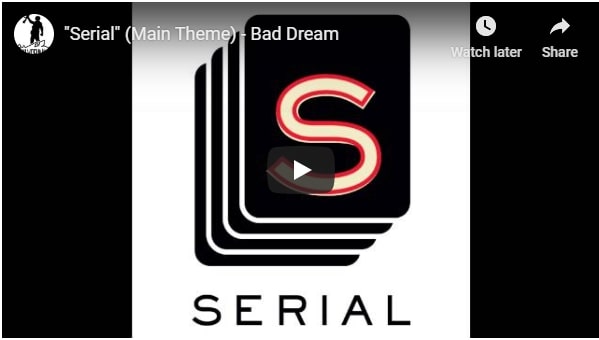After you’ve done your research and decided that podcasting is the perfect way for you to hit your goals, several questions will pop up.
One of the most important questions has to do with podcast hosting. What’s the best podcasting site to host your content?
Unfortunately, you can’t just record a great podcast episode and upload it to iTunes or Spotify.
First, you need a podcast hosting platform that’ll store the files and make it easy to distribute it to directories.
Instead of going through dozens of websites, social posts, and forums to find the answer, I’ve compiled 16 of the best podcast hosting sites to help you get your messages to the hundreds of millions of people who listen to podcasts.
Why do you need podcast hosting?
If you’re new to podcasting, you may not realize that quality audio files tend to be huge. Uploading them to your web hosting isn’t ideal because it can quickly eat up your space allowance - especially on shared hosting. If you’re using a CMS like WordPress, you’ll also have a file size upload limit. Of course, you can get around that if you contact your host but that’s not the real issue.
When selecting a podcast hosting platform, it's crucial to consider how it integrates with your existing website. For those using WordPress, seamless integration can enhance both user experience and content management.
Collaborating with professional web developers ensures that your podcast episodes are effectively embedded and displayed on your site, providing a cohesive experience for your audience. These professionals may add podcast players, subscription choices, and analytics tools to your website, all of which can be customized to meet the functional and visual requirements of your business.
CMS like WordPress can get a podcast site up and running in no time, but trying to use it for storing those hefty audio files? That's just asking for trouble with site speed. Any seasoned podcaster will tell you that WordPress is great at what it does - making sites look slick and managing content - but when those audio files start piling up, it's time to call in the specialists.
Dedicated podcast hosting services don't just keep WordPress running smooth - they bring all those must-have features to the table, like detailed listener stats and proper streaming, stuff that regular web hosting just wasn't designed to handle.
A normal image file, when optimized, is about 100kb or less. That’s a small file. A high-quality audio file of about 30 minutes, when optimized, can reach 300mb. When one person comes and listens to your podcast episode that’s been uploaded through your web host, there’s not much of a problem. It’s when multiple people are listening at once that it’s an issue.
Your website can slow to a crawl and consume all the bandwidth on shared hosting plans. Even if your hosts claim there’s unlimited bandwidth, there are usually fair usage policies in place.
This is where Dedicated bare metal hosting becomes a powerful alternative, offering guaranteed resources without the limitations commonly found in shared or virtual environments.
You risk getting kicked off your hosting or having to upgrade to a higher plan. Even then, there’s a limit to what even the best web hosts can handle. A popular show can cost you a lot of money without proper podcast hosting.
A podcast host is where you upload your audio files. It produces an RSS feed which you can then distribute to directories. Every time you upload a new episode, directories like iTunes and Spotify are also updated. If someone is listening, the content is downloaded or streamed from the podcast hosting site you’re using.
Another reason is because of the added benefits associated with some of the best podcast hosting companies like analytics, in addition to podcast directories, websites, audio players, and more.
You may also like:
- How to grow your podcast audience with simple surveys
- The One Thing you Need for a Successful Podcast
- Pros and Cons of Podcast Ads
- Top 13 Demographic Survey Questions you Should be Using
- Target Market Examples, Definition, and Finding the Right one
- The 11 Best Free YouTube to MP3 Converters
- Best YouTube Downloaders of the Year
- 15 Best Landing Page Builder Software
** Please note, a few of the links below may be affiliate links. However, the tools have been vetted to ensure they’ll help you build a successful podcast.
Just tell me who the best podcast hosts are so I can get started
The TL;DR version.
Buzzsprout – This is a great option for beginner podcasters that haven’t found their footing as well as advanced podcasters that know their way around podcast platforms. It has a free tier and simple interface that’ll allow you to get up and running quickly. It has the core features you need to get your great content in front of the right people. The years of experience it brings to the table is a definite plus.
Podbean– Podbean is one of the rare tools that’ll be ideal for you at all stages of your growth. It’s a strong all-around choice for podcast hosting. It's a generous free podcast hosting tool that has tons of unique features to help with monetization. It’s one of the most robust podcast hosts available and you can’t go wrong no matter what your needs are.
Transistor.fm – This is a relatively new podcast hosting company but they’re quickly making a name for themselves. It has an intuitive interface and lets you launch and maintain multiple podcasts on your hosting plan. It’s ideal if you have more than one podcast and use a team to produce high-quality content.
Podcast hosting comparison chart
Buzzsprout | Podbean | Transistor.fm | |
|---|---|---|---|
Best for | Beginners | Brands and video podcasts | Brands and creators with multiple shows |
Podcast website | |||
Social posting | |||
Email integration | |||
Starting price | Free | Free | $19 |
Embedded player | |||
Podcast stats | |||
Donations | |||
Directory integrations | |||
Scheduled publishing | |||
Transcription service | |||
Autopublish to YouTube | |||
Cell | And get a $20 gift card when you upgrade to a paid plan |
What is the best podcast hosting site
Further exploration into the podcasting universe is crucial, and one of the ways to do so is by looking at some of the best podcast websites out there. These websites can provide a wealth of inspiration and insights, helping you understand how successful podcasters have navigated their hosting decisions and utilized the platform to its full potential. The more you learn about the podcasting ecosystem, the better you can tailor your approach to fit your specific needs.
This is the moment of truth. Which podcasting platform has the highest score and is worthy of hosting your hard work?
I’ll be honest, that’s not the easiest question to answer because every podcaster has unique needs. Keep that in mind when you’re looking at the top podcast platforms picks.
1. Buzzsprout
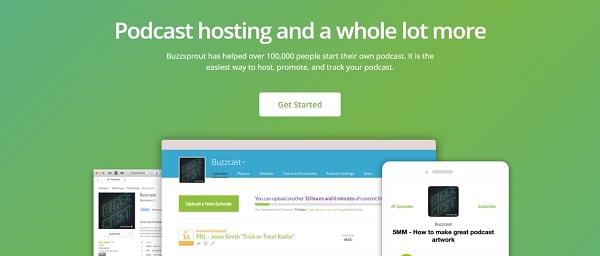
Buzzsprout was founded in 2008 and has become one of the favorites among first-time podcasters. It scores high marks on ease of use and brings solid features to the table that’ll help you grow your podcast.
The core podcast hosting and upload and interface is designed to get you up and running within a few minutes of registering your account. After uploading at least three podcast episodes and getting a minimum of a single listen to each, you get access to detailed stats. You can see total plays, top countries, top directories, and your most popular episodes. These are estimates that are calculated using a unique Buzzsprout algorithm.
The podcast player is customizable to match your brand and can be embedded in almost any website. It also optimizes your website for the best quality possible without extra work. It also has an add-on for 192k stereo optimization. Finally, you get a podcast website which can be customized with your brand colors and a few other options.
Buzzsprout only allows a single podcast per plan so if you have multiple shows (or plan multiple shows in the future), it’s important to consider that.
The Buzzsprout UI itself is simple to the point of feeling dated but it comes with a positive side - there’s almost no way to get lost. If it isn’t broke don’t fix it right? That’s why it’s such a good option for beginners – a tiny learning curve.
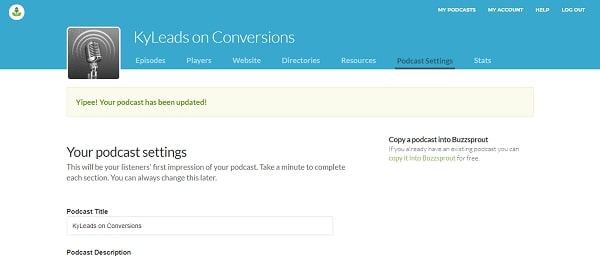
Buzzsprout can be reached via email if you run into any issues and they also have an extensive knowledge base so you can solve small issues on your own.
Pricing
Finally, Buzzsprout is free to start. You can upload up to 2 hours of audio content a month and the most expensive paid plan is $24/m.
The plans all have the same features with the major difference being the number of hours of audio content you can upload every month. The largest paid plan gives you 12 hours of uploads a month.If you're on the fence, keep in mind that it's a free podcast hosting platform you can grow into.
And get a $20 Amazon gift card when you upgrade to any paid plan.
2. Podbean
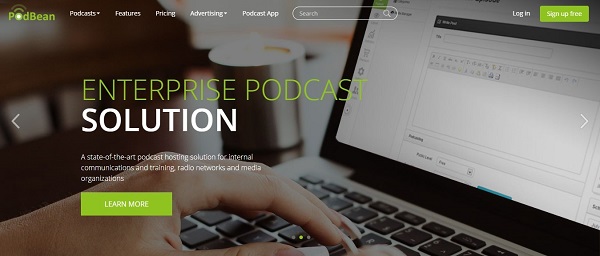
Podbean is a veteran in the podcasting space and has been around since 2006 before podcasting was a thing. During that time, they’ve grown to serve 300,000 podcasters in almost every niche. Across the platform, they’ve managed over 9 million podcast episodes which have been downloaded over 6.4 billion times.
They can only boast of stats like that because of their impressive collection of features. Of course, you get podcast hosting for your audio files. Once you’ve started your channel, collect the RSS feed URL and submit it to the major directories such as iTunes, Spotify, and Google Play.
Podbean customers also get access to podcast websites. Choose from a large selection of prebuilt themes and put your best foot forward. It also has powerful analytics that gives you deep insights into the performance of your podcast over time. View audience numbers, downloads, and trends about performance.
These features are expected in podcast hosting sites. Podbean stands out from the crowd with the monetization options and extra podcast distribution options that have been built for podcasters. It may not have direct integrations to other directories but is a directory on it's own which makes it one of the best podcast websites out there.
Podbean supports video and when you link your YouTube channel, it can automatically produce a basic video for you. Instead of going out of your way to find advertisers, tap into the Podbean advertising marketplace and find the perfect partners.
If you don’t want to go the advertising route, set up a recurring subscription for your audience and give subscribers access to special content. Finally, monetize your podcast using the patron features. Your true fans can subscribe to pay you a certain amount every month so you can continue to deliver great content without constraints.
The Podbean dashboard is simple to learn and understand. When you first sign up, you’ll have a generic image and podcast name which you can then edit.
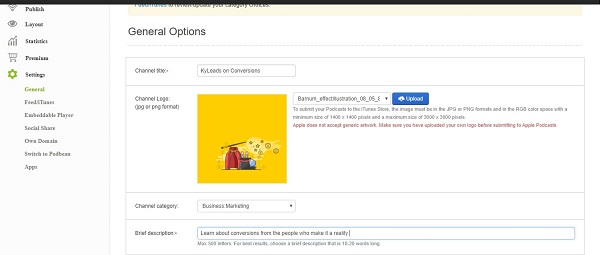
After you’ve done the preliminary setup, chosen a category, and added your descriptions you’re free to start uploading episodes and submitting to directories. It has a detailed knowledge base and they can be contacted via email or chat (premium customers) if any issue pops up. The response time is superb and the support staff is knowledgeable.
Pricing
Pricing is another plus. It lets you get started with podcasting for free with an allowance of 5 hours of uploads a month and 100GB bandwidth. The paid tiers go up to $99/m and include unlimited storage and bandwidth, advanced design options, and the ads marketplace.
It’s a solid choice that’ll be able to support your podcast no matter how popular it gets.
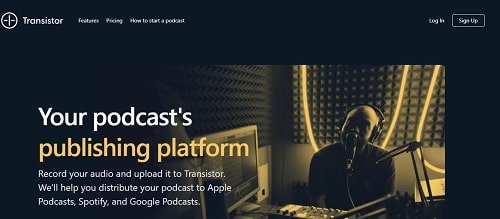
Transistor.fm is relatively new to the world of podcast hosting. It has an emphasis on team collaboration and ease of use.
In addition to hosting your audio files, Transistor.fm has great analytics that let you understand what’s working and where you should be applying your effort. 90 days of stats, subscriber counts, best directory, and more are included. In addition to the stats, you can host multiple podcasts, invite team members, customize your player and embed it anywhere, and create beautiful branded websites.
As I mentioned before, it’s a simple to use podcast hosting site that’ll get out of your way and allow you to focus on growing your audience. You can access support via multiple channels which includes a knowledge base, live chat, and email tickets. You can also import your podcast from a different hosting platform without hassle.
Pricing
Finally, Transistor.fm doesn’t have a free plan but it does allow you to test all the features with a 14-day trial. After the trial, paid plans start at $19/m up to $99/m and are limited by the number of team members you can invite and total show downloads.
4. Simplecast
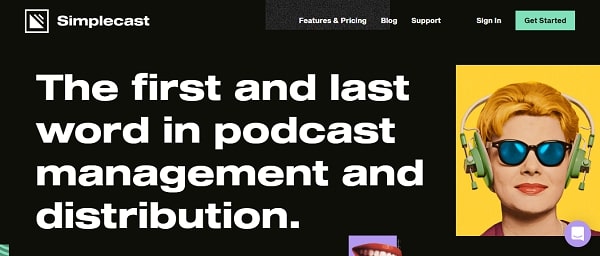
Simplecast is one of the most powerful podcast hosting sites on the market and has built that expertise over 6 years.
It has in-depth analytics that gives you insights into the popular episodes, top listening apps, popular countries, and most popular listening time. It also has a unique analytics feature it refers to as audience insights. These insights allow you to compare multiple episodes, get customizable download charts, view an interactive location map, listening locations, device type, and more. It also has another set of analytics that reveals listening speed, retention, and embed locations.
Simplecast also comes with unlimited storage, unlimited uploads, themed websites, team support, and more. It’s a bit more complicated to use at first but the range of features and the detailed analytics more than make up for it. If you run into any issues or want to find out more about how to use the Simplecast podcast platform, you can access a knowledge base, send an email, or communicate with the support team via chat.
Pricing
Pricing ranges from $15 - $85 a month and comes with a 14-day free trial. The Simplecast entry-level plan doesn’t get any access to the audience insights which limits its main selling point. If you can afford it then I suggest you go with the middle tier or above to enjoy its robust features.
5. Captivate

Captivate is among the best podcast hosting platforms for a few key reasons. It was built with independent podcasters in mind and focuses on helping them grow their podcast faster with a few key features.
Calls to action on the podcast player to help you send people to the right place at the right time. The player itself is completely customizable so you can match it to your brand. It also provides podcast websites which can be customized down to the smallest detail. Upload your podcast, distribute it to directories, and invite your team.
In addition to the growth-oriented features, it has 24/7 support via email, live chat, and a knowledge base. Just like the website itself, the dashboard is well designed and makes it easy to navigate even if you’ve never used a podcast host before.
Pricing
Pricing starts at $19/m and goes all the way to $99/m. All plans come with a 7-day free trial to use all the features contained therein.
6. Castos
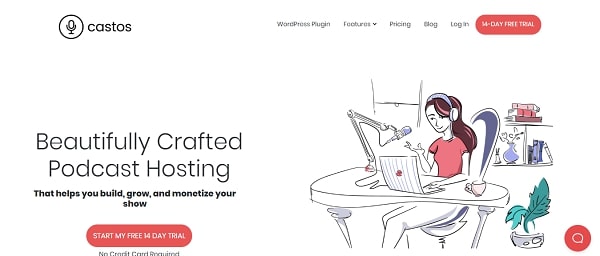
Castos was founded by veteran podcaster Craig Hewitt who’s been podcasting for over 4 years. The platform is built to make podcasting with WordPress a breeze.
It has the features you’d expect like unlimited storage, unlimited podcasts, and unlimited bandwidth. If you’re coming from another platform, it’ll help you migrate all your shows and episodes at no charge. After installing the WordPress plugin, you’re able to upload podcasts directly from the WordPress dashboard. For an additional fee, you can also get automated transcripts.
It also gives you the ability to publish to YouTube, customize your podcast player, and access deep analytics that let you know exactly what’s working.
It has an intuitive modern interface to make podcasting simple no matter your experience level and the knowledge base will answer most of your questions. In addition to that, you can send an email or chat with the team live.
Pricing
Castos starts at $19/m up to $49/m – all plans come with unlimited storage and episodes.
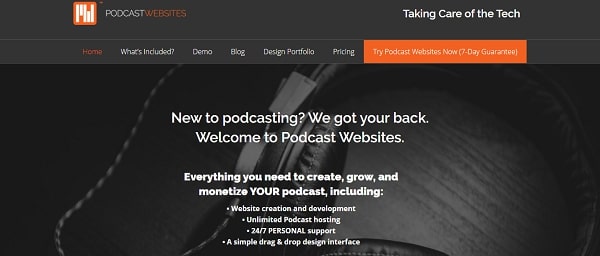
Podcast Websites has an emphasis on building beautiful websites for your podcast. The themes are made for WordPress which allows you to get up and running quickly.
It comes with built-in integrations to popular services such as Aweber and MailChimp to help you grow your mailing list. It also has detailed analytics to help you understand your growth over time. Podcast Websites also takes learning seriously with a dedicated academy to teach you tricks of the trade.
The website builder has a simple drag and drop interface and you can create unlimited landing pages, blog posts, and web pages. It also comes with unlimited traffic allowance, daily backups, unlimited hosting, and more.
24/7 support ensures you’re taken care of at all times and the interface is straightforward but looks a bit dated.
Pricing
It has two pricing plans of $77/m and $97/m and a 7-day guarantee. It’s the ideal solution if you want everything handled under one roof.
8. Libsyn
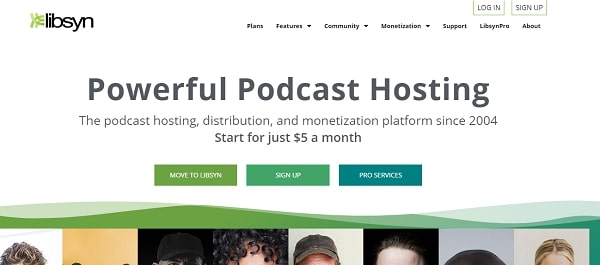
Libsyn is an old podcast hosting player and has been in the trenches serving podcasters since 2004. It has evolved into a one-stop-shop for hosting and monetization.
It provides detailed analytics to understand your audience with information like geography, social media stats, downloads, and more. It also has a feature called myLibsyn that allows you to gather subscribers who pay to access premium content. It’s on a revenue share model ranging from 70% – 80% depending on the number of subscribers you have.
Podcasters can also customize the player and publish their podcast to multiple directories at once. The interface is decent and support is responsive and knowledgeable.
The reason it doesn’t get a higher spot on the list is that the data allowances are quite small. If you produce a longer podcast multiple times a month then you’ll be immediately pushed into the higher tiers.
Pricing
Plans range from $5 - $40 or more every month.
9. Spreaker
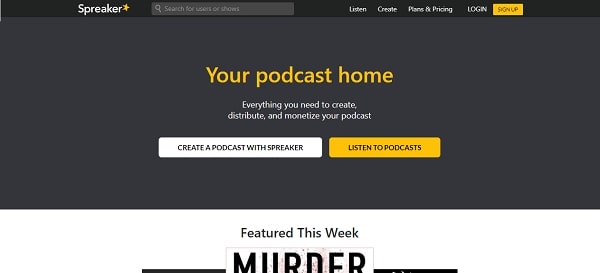
Spreaker is a simple podcast hosting platform that focuses on a few key features. It starts with the option to host live podcast episodes right from its app known as Spreaker Studio. It can also be used to record your podcast episodes without going live.
It also has analytics that let you know your listen/download numbers, location of your audience, and traffic sources (how people find you). Finally, it has auto-publish features for YouTube, a show webpage, and the ability to host multiple shows.
The interface is relatively straightforward and should be easy for you to learn and if you have any issues, you can access a knowledge base or send an email.
Pricing
It let's you start podcasting for free with its entry level plan and works its way up to $50/m. It’s limited by the number of hours of content that can be hosted with the free plan giving you 5 hours total and the largest plan giving you 1,500 hours.
10. Podomatic
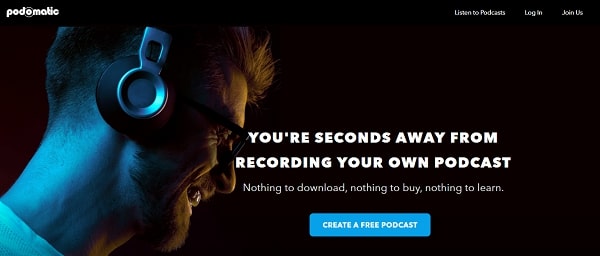
Podomatic is a free to start podcast hosting platform that’s been around since 2005.
It focuses on getting you up and running quickly so you can produce great content for your audience. It comes standard with analytics, 15GB of bandwidth every month, and free storage of up to 500MB.
You also get access to a podcasting website powered by Weebly, the ability to monetize your podcast with patrons through Patreon. There’s a direct Patreon link on your podcast page so your audience won’t miss it. If that’s not your thing then you can connect with advertisers through Advertisecast.
The interface is simple enough to learn and support is responsive. Contact them via email, phone, or take advantage of the knowledge base.
Pricing
Plans start at $9.99/m and go up to $24.99/m.
11. Podiant.co
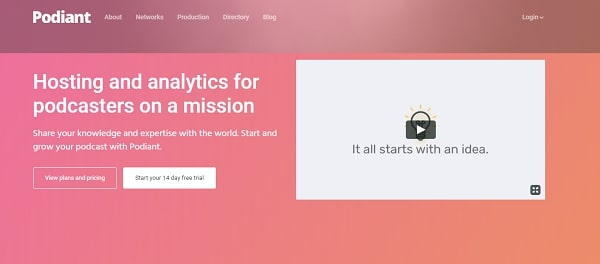
Podiant is a podcast hosting platform that’s starting to make its mark in the podcasting world. To date, it has managed over 3 million downloads.
It comes with detailed analytics to show you the major stats about your podcast and recommendations about how you can improve viewership and engagement. It also allows you to connect social channels like Facebook and Twitter and auto-publish to YouTube.
In addition to the standard hosting (which comes with unlimited storage), you’re able to build beautiful podcast websites with landing pages, bio pages, episode pages, a blog, and more. The support is responsive and knowledgeable and there’s a detailed knowledge base. The interface itself is easy to navigate so you should be up and running pretty quickly.
Pricing
Pricing starts at $12.99/m and caps out at $35.97/m.
12. Audioboom.com
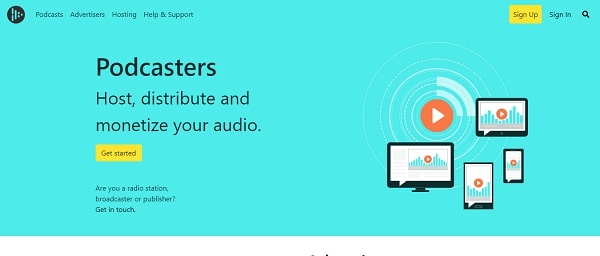
Audioboom is a combination podcast hosting solution and platform to connect with advertisers.
Audioboom helps you distribute your podcast episodes the largest directories. Add a responsive embeddable player anywhere you can think of and access analytics that gives you detailed insights about episode performance. Get a simple podcast page on Audioboom and also invite collaborators to help make your show amazing. Finally, upload unlimited episodes per month.
When you have a larger volume, you can get access to the advertising partnerships, contributor accounts, sponsorships, sales service, and more.
Support is handled via email and it has a detailed knowledge base to answer the most common questions and problems that may arise.
Pricing
If you have less than 10,000 downloads per episode then it’s a flat rate of $9.99/m.
13. Podserve.fm
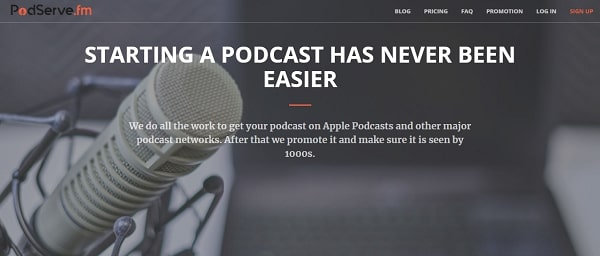
Podserve was created by the people behind PodParadise.com and is unique among podcast hosts because it actively promotes your show to their audience and bills itself as a full-service host. With that being said, we’re here for the best podcast hosting site so that’s just a fringe benefit.
It has a limited amount of features because the selling point is promotion. When you upload your podcast, it will work to get it listed in the major directories. Once you start getting listens, you’ll be able to access analytics that shed light on downloads, geography, and most popular days. It supports unlimited podcasts and episodes.
Podserve is a decent hosting company and you won’t have any issues of you sign up with them but they don’t have many advanced features. The emphasis is on getting your podcast in the popular directories and promotion.
Pricing
There’s only one plan at $19/m.
14. Fireside.fm
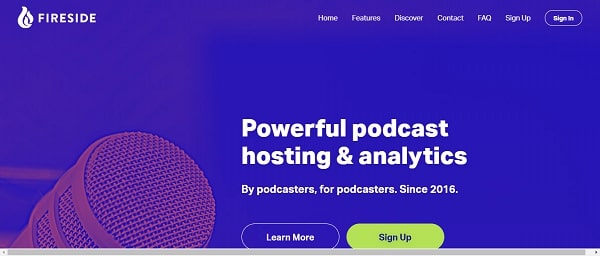
Fireside is a podcast host built by podcasters for podcasters and is relatively new to the game. It comes standard with unlimited episodes and downloads.
It has interesting features such as a customizable website with an attached blog, detailed analytics, and a customizable player that can be embedded anywhere. There are also multiple tools to take it further like sharing stats with sponsors, collaborators, and scheduled publishing.
It has a simple user interface that’ll make it easy to get set up and running and the support center is well thought out. If you run into any problems, contact them via email and it’ll get sorted out sooner rather than later.
Pricing
It comes with a 14-day trial and single plan at $19/m which removes the hassle of thinking about if you’re going over your limit.
15. Backtracks.fm
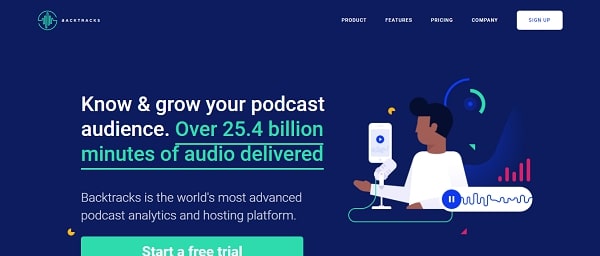
Backtracks is a podcast hosting platform that’s on a mission to change the industry. Traditionally, analytics are hard to measure and there’s no differentiation from a download and a play.
That’s where Backtracks steps in. It has powerful analytics built on an open-source framework it developed. Get historical data, create custom reports, view trends, and take advantage of AI to ensure the data is accurate. In addition to the robust analytics, you get an embeddable player, secure hosting, and API access.
It has a modern interface that even the least tech-savvy person can understand quickly. The support team is knowledgeable but it’s tied to your pricing plan with the lowest plan being excluded to from email support.
Pricing
It starts at $49/m and goes up to $249/m. Though it’s a powerful podcast analytics platform, it’s much more expensive than other solutions on the market and doesn’t have as many features. In addition to that, support quality is explicitly tied to your pricing plan.
16. Soundcloud
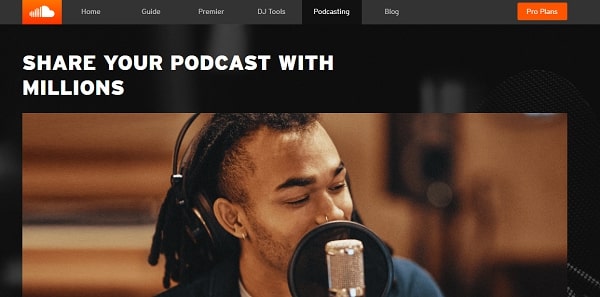
Soundcloud is a popular music hosting platform which many people have decided to use to host their podcasts. Though popular, it doesn’t have many of the features you’d expect in a podcast hosting platform.
One of the benefits of using it is the ability to get discovered organically on the Soundcloud website. People can also subscribe to get updates about your content. The pro plan ads detailed analytics, scheduled releases, and removal of public stats.
Utilizing Soundcloud promotion effectively leverages the platform's unique features to enhance visibility and listener appointment.
For podcast creators looking to grow their audience, SoundCloud offers a unique ecosystem that blends music and podcast streaming. Its convenient interface and vast user base make it an attractive option for podcasters aiming to reach a diverse audience.
The platform's organic discovery features are complemented by robust analytics and advertising tools available in the Pro plan, which can greatly enhance a podcaster's ability to schedule content, track listener trends, and optimize appointment strategies.
Such features make SoundCloud a viable option for podcasters at various stages of their creative journey
Pricing
It can be a solid choice is you’re looking for a free option but you can get a lot more if you take the 7€ - 11€ and invest it in another podcast host.
Best free podcast hosting
I’ve gone through the best podcast hosts as a whole. Now, I want to break down who the best free podcast hosts are. The ranking criteria are still the same but the entry-level plan has to be free.
That doesn’t mean they never charge you. It just means it’s easier to get started because one the monthly subscription won’t kick in until your show starts to grow.
Keep in mind that many of the podcast hosting services that start out as free also limit the functionality that’s available.
Buzzsprout
Buzzsprout takes the crown as the best free audio hosting service because it provides a lot of functionality to its users even on the free plan. You’re able to upload up to 2 hours of audio every month. There are fair use limits but that’s applicable to all plans.
In addition to uploads, you gain access to the Buzzsprout marketplace where you can promote other products and even Buzzsprout itself to earn affiliate commissions. After you’ve published a few episodes and have listens, you gain instant access to basic analytics that let you know how well your show is doing over time.
Navigating the tumultuous seas of podcast hosting can be daunting, but Buzzsprout emerges as a beacon of hope for aspiring content creators. Its generous free plan isn't just a teaser; it's a robust launchpad for podcasters to sell products and ideas to their audience.
While the 2-hour monthly upload limit might seem restrictive, it's a clever push towards consistent, quality content creation. The platform's intuitive interface belies its powerful capabilities, seamlessly blending user-friendliness with professional-grade features.
Podbean
Buzzsprout edges out Podbean when we’re only considering free hosting services. That’s because instead of providing you a quota of uploads every month, it only offers 5 hours total on the free plan. The bandwidth is also limited to 100GB/m.
Don’t get me wrong. I don’t believe they should give everything away on the free plan because they have to stay in business. In addition to the limited uploads, you’re unable to access the marketplace or start multiple shows on the free plan.
If you’re ready to upgrade then it’s a solid choice but if you’re still looking for a bargain host then Buzzsprout is a better option at this point.
Spreaker
Spreaker also offers a free plan that gives you up to 5 hours of upload time a month. Spreaker has a live podcast feature but when you’re on the free hosting plan, it’s limited to only 15 minutes. If you’re planning on interacting with your audience during that time or having a guest on, it may not suffice.
It also cuts your ability to monetize your podcast through their platform. With that being said, I do believe they’re generous because it still offers unlimited listens (unlimited bandwidth) for free users. Many of the other hosts don’t offer that.
Be wary of completely free audio hosts
It’s said that if you don’t know what the product is then you’re the product. Take Facebook. It doesn’t charge you for its app but it sells access to your data to advertisers. Because of that, you’re the product. Of course, you don’t want to overpay for podcast hosting. At the same time, it’s important to make sure the price is in line with the features.
A note on free podcast hosting
There are many free podcast hosts and there's nothing inherently wrong with that if they have a clear monetization strategy in place that requires you to eventually pay.
There are many podcasts hosts that don't ever require you to pay and you should be wary of them. They either take a cut of your revenue or do some funny thing with your audio and RSS feed that makes it difficult to move to another platform.
Of course, we didn't add any of them to this list but it's something to keep in mind when comparing and finally choosing a podcast hosting site.
Podcast hosting platform ranking criteria
There are 16 total podcasts on this list and each one is ranked against 4 specific criteria. The better the score, the higher its position on this list.
1. Ease of use
How easy is it to learn how to use the tool? Is the onboarding process clear and useful or will it confuse people who are new to the world of podcasting? Is the interface outdated or have they kept up with modern design trends? What about the language and terminology – is it clear and concise or confusing?
2. Price
Do they have a free tier and if not are the paid plans reasonably priced when compared to other tools on the market? If it’s more expensive, is there any real justification for that?
3. Features
In addition to the standard features you’d expect like hosting a podcast, what else does it bring to the table? Does it have analytics, websites, and more to give you an edge when trying to gain traction for your podcast?
4. Support
What kind of support channels do they offer? Is there a knowledge base, live chat, phone support, email support, a blog or forum, etc.? How responsive is the support and are they knowledgeable?

You can then use that information to tailor your content to their particular needs.
For example, if you find out many of your audience members listen to your show in the morning and evenings, you can assume it’s on the daily commute to work and make the episodes an appropriate length.
If you find out most listeners are from Texas, you can do a live event there and be confident of the turnout. There are many ways to play with the data and draw insights but you’ll never know until you get in there and play with it.
Further benefits of podcast hosting
If you’re serious about podcasting, there are quite a few benefits to choosing a solid hosting platform for your show. This goes above and beyond an easy upload process and not slowing down your server. Even though those are important, it only scratches the surface.
Podcast hosting is much cheaper
It may seem like an added expense upfront because normal website hosting plans are paid annually and tend to be less than $100 for the first year than just over $100 in subsequent years. If you can host your podcast and website together, you’ll be winning.
Well, it doesn’t quite work that way. As mentioned before, shared hosting isn’t designed for podcast audio files. That means you’ll either be kicked off your hosting for fair use violations or forced to upgrade to a much higher plan.
When you consider the cost of being kicked off of hosting or upgrading to the highest tier the hosting company has, you’ll soon realize that it’s much cheaper to pay a few bucks a month for legit podcast hosting.
Data transfer is smoother
Another benefit of using podcast hosting services is the way they transfer your data. With normal hosting, it would be a direct download from your website. If you have a large audience, that means those downloads will eat up a large amount of bandwidth and put you at risk of losing your account.
A dedicated audio hosting platform is set up to transfer large amounts of data to the end-user – quickly. This cuts down on latency, doesn’t get affected by a large number of people downloading at once, and there are built-in redundancies.
The end result is that you can rest assured knowing your hard work will get into the hands of people that care.
It’s secure
Security is a big concern – especially in the wake of issues with Facebook and large organizations being hit by hackers. Your audience expects you to be a professional. What would happen if someone hacked into your hosting, deleted a few episodes, and replaced them with vulgar messages for kicks?
You wouldn’t be happy and your audience wouldn’t be happy.
That’s why an intermediate in the form of a podcast host is your best friend. It will have a team of developers that stay abreast of the latest security practices and use tools like no log VPNs to protect you.
All you have to do is worry about creating great content for your audience while your host worries about the heavy lifting to keep you safe. Of course, you should always follow best practices so you won’t be among the alarming cybersecurity statistics.
Add-on services
This may be the most important benefit of having a dedicated podcast hosting service for your audio files. You get robust data about how people are listening to your podcast, where they are, what device they’re using and so much more.
What to consider when selecting the best podcast hosting service
There are a lot of factors to take into consideration when choosing a podcast hosting service. The podcast platform you choose has to meet your needs. In addition to the criteria outlined before, consider the following things.
There are a lot of factors for businesses, podcast companies, and podcast advertising agencies to take into consideration when choosing a podcast hosting service. A user-friendly interface can save you time and effort, especially if you’re new to podcasting. The hosting service should also be able to distribute your podcast to a wide range of platforms, including Apple Podcasts, Spotify, Google Podcasts, and others, maximizing your reach.
Reliable hosting services form the backbone of any successful podcasting strategy, providing the technical infrastructure that keeps your content accessible to listeners around the clock. The best providers offer scalable solutions that grow alongside your audience, eliminating those frustrating bandwidth limitations just as your show starts gaining serious traction.
When evaluating potential hosting partners, don't overlook their analytics capabilities—comprehensive listener data isn't just interesting information, it's actionable intelligence that shapes your content strategy and proves invaluable when approaching potential sponsors.
Ensure the platform fits within your budget and provides good value for the money. Some platforms may offer extra features like transcription services, advanced analytics, or website integration, which can justify a higher price. To sum up, the podcast platform you choose has to meet your needs. In addition to the criteria outlined before, consider the following things.
The focus of the podcast host
Each podcasting platform is slightly different in what they do and the type of customers they’re looking for. For example, Backtracks is focused more on enterprise customers and podcast aggregators. Its main focus is the analytics suite and because of that, it lacks a lot of other features. It’s by no means a bad host but it’s not for everyone.
Reliability, bandwidth, and upload time allocation
One of the most important things to consider is the reliability of the podcast hosting platform. It wouldn’t make sense if they gave you unlimited everything but were always experiencing downtime. Once you’ve determined they’re reliable, you want to make sure there’s enough bandwidth to support the downloads you get.
Finally, how much storage space is available? Audio files are large so you want to make sure the total allotment will be enough to serve you over time.
Other considerations for podcast hosting
The following considerations may not weigh directly when you’re choosing the best host for your needs but they’re still important. Keep them in the back of your mind because it’ll affect your overall brand and growth.
Website hosting
Reliable hosting isn’t a choice – it’s essential. You can start with an entry-level plan with someone like Bluehost but you’ll need to migrate once your platform grows. If speed and security are important to you then I’d suggest a dedicated WordPress like WPX Hosting. It’s the host we use for the KyLeads marketing site and we’re happy with the performance.
Email marketing & List Building
This is how you get your audience members to do more than just listen to your podcast. It’s also how you build deeper connections and eventually sell products that turns your podcast into a real online business.
We only recommend three tools for this.
- KyLeads – yes, we’re biased because it’s our software but it’ll definitely serve you well for list building and even surveying your audience to find out the kind of content they want to see.
- ActiveCampaign – This is the exact email marketing service I’ve been personally using for years and I brought it over to KyLeads. It’s a beast of a tool and if you want to select a platform that’ll serve you no matter how big your list gets then this is for you.
- Leadpages – Of course, you need landing pages and Leadpages is perfect for that.
How to successfully launch your podcast
Yes, selecting the right podcast hosting platform is an important consideration but it’s only part of the battle. There are many more things to consider such as choosing a niche, marketing, getting guests, equipment, and so much more.
In this section, you’ll get a crash course that’ll show you how to successfully start your podcast and get ahead of the pack.
Choose a catchy name
Many people think a name isn’t too important. It is. There are many ways to go about creating a name. It could be:
- A brandable name like “Maker’s March”
- A descriptive name like “sales training show”
- A host’s name like “the Gary V show”
Each of these options is a good fit for a different situation. If you’re building a personal brand or are well known in your space then using your name may be a good idea. If you want it to be easily found then a descriptive name could be a good choice.
There’s no right answer per se but there are bad names.
Spend a considerable amount of time on this so you won’t have to change your name down the line. That would be difficult.
Here are some of the names of the top podcasts in the world to give you an idea:
- This American Life
- Serial
- 99% Invisible
- Without Fail
- NPR Invisibilia
- Stuff you should know
- Planet Money
- The Joe Rogan Experience
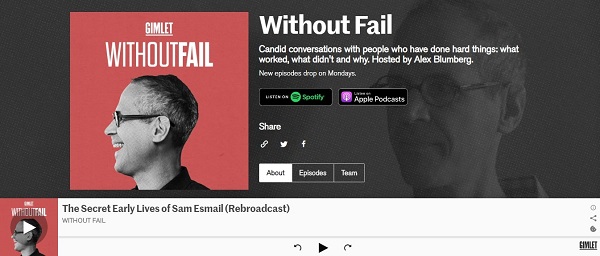
As you can see, they’re all over the place. Just make sure that it conveys the message you believe will appeal to your target audience. If you’re in doubt, run audience surveys and ask people to choose between a few names.
Where to find podcast intro and outro music
Why does your podcast need intro and outro music?
There are a few reasons for that (this article goes deeper into finding podcast music and its benefits) but I’ll just touch on it and give you a few places to find free and paid intro music.
It sets the tone for the rest of your show
Music is the most immaterial form of art but can also convey the most emotion.
It starts slow and builds into a crescendo. That’s the same tact the show takes as it walks you through some of the most powerful cases in history.
Match your intro and outro music to the emotional tone of your podcast and you’ll get the right listeners to stick around.
Podcast intro music creates familiarity
This is a type of fringe benefit to podcast intro music. To illustrate, think of your favorite TV show. The one you can watch from beginning to end over and over again.
If you hear the opening score, you know it’s on because you’re so familiar with it. At one point, that’s what was happening to me with Game of Thrones.
Anytime I heard that music, I knew it was time to binge for over an hour on the most pirated show in the world.
For podcast music, you have three main options:
- Create the music yourself
- Get free music from aggregators such as
o Music for makers
o Free music archive
o Free Stock music
- Pay for music from places such as
o Jamendo
o SoundStripe
o AudioJungle
Design cover and episode artwork
Your cover artwork isn’t something you should spend $5 on and call it a day.
Why?
Because it’s one of the first interactions people have with your podcast brand. It gives them a glimpse into what kind of show you’ve created and helps them decide if they’ll take a bit more time to figure out what you’re all about.
Look at it this way:
Podcast directories have tens of thousands of podcasts in almost every category. When people are scrolling through those directories, they’re looking for something that seems interesting.
The right cover art and a catchy podcast name will get people to stop scrolling and look at your show for a few more seconds. That may be the difference between a steady stream of new fans and failure to gain traction.
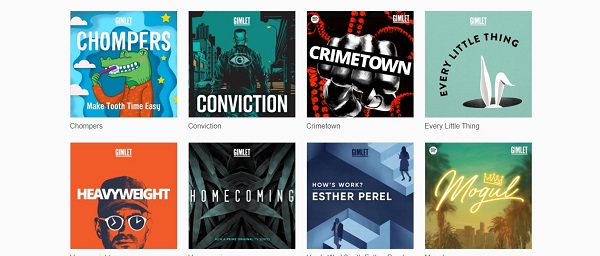
Gimlet media produces many shows and has impressive cover art for all of them. It gives you a hint about what the show focuses on and also invokes curiosity.
What is the best podcast equipment?
No matter what they tell you, podcast equipment matters. With that being said, you don’t have to go out and buy everything at once. Invest in the essentials now and expand your setup down the line.
You only need three things to start::
- Computer
- Microphone
- Headphones
For the computer, as long as you currently have a good one then there’s no need to go out and buy a high-end laptop. Make do with what you have until your podcast starts to generate revenue for you.
For a microphone, don’t go overboard. Here are a few options:
- Blue Yeti
This is one of the most popular mics for podcasters just starting out. It’s relatively inexpensive (just over $100), durable, and has great sound quality. I can’t tell you how many times my toddler has gotten his hands on this mic, dropped it hard, and it just keeps going
.
- Rode NT1 Cardioid Condenser Microphone
This microphone is a bit more advanced and comes in at just under $200. There are a few kits on Amazon that have the mic, a shock mount, and a pop filter. If you get a setup like this, you’ll be good for years to come.
Headphones are an important part of your recording setup because they allow you to hear your voice in real-time. You’ll be able to catch any audio ticks or weird feedback that could ruin all of your efforts.
Get what’s known as “closed-back” headphones for recording audio. It prevents audio from the headphones being picked up by your microphone.
When setting up your podcast environment, it's essential to consider the acoustics and any potential background noises that risk being picked up by your microphone.
It's good to remember that just using a podcast hosting platform alone won't magically make bad audio quality sound great. You can do a few things to make sure your podcast sounds amazing.
First, find a quiet place to record where there's not a lot of noise from outside. It's even better if the room is soundproofed to block out any unwanted sounds.
Doing a test recording before you start to find any issues and eliminate unwanted sounds is a good idea. Doing these things'll give your listeners the best possible audio experience.
There are many options and the prices can range from under $100 to thousands. Obviously, you don’t want to jump in and spend too much on your first pair of professional headphones so here are two budget-friendly options:
- Sony MDR7506
These headphones are under $100 and will last a long time unless you have a habit of flinging them all over the place. The sound quality is great when compared to run of the mill headphones and it has a decent frequency range.
- Audio-Technica ATH-M30x
These ones became popular years ago and have only been getting better. If you had to choose just one pair of headphones for the rest of your life, these are those headphones. Go get them – now.
Source podcast guests
Everything before this is important and may be all you have to do if you’re going to be hosting your show alone. If you’re going with an interview format for your podcast hosting (highly recommended) then it’s important to source the right guests.
How do you know who the right guests are?
You do your research. First and foremost, you should have a niche for your podcast. If you don’t then stop here and read this guide we wrote on the topic.
Are you back?
Good.
Now that you know what niche you want to tackle, it’s time to find guests.
The simplest way to do this is to type in the major keywords around your niche into Google. If you’re in marketing then type marketing and a few variations into Google.
What names keep coming up?
Have they done podcast interviews in the past?
Do they also promote the podcast episodes they’re featured on?
Create a shortlist of around 50 people (not everyone will reply or want to be included).
Once you have a shortlist, repeat the same process on LinkedIn and Facebook. With Facebook, search for relevant groups. With LinkedIn, look for people who seem to fit the bill and expand your list to at least 100 people.
After you’re done, start reaching out.
Tell people about your show, your ideas for promotion, what you’d expect, and what’s in it for them.
If it’s a good fit, they’ll reply and it’s just a matter of getting the logistics right.
Don’t overthink this part. You’ll get better with pitching over time.
Record multiple episodes
Once you’ve got a few guests lined up or topics you want to talk about, start recording your podcast.
Push out multiple episodes at once so you have a better chance of climbing the charts on iTunes (that’s where you’ll get the majority of your listens.
Aim for at least three episodes. If you can record even more then go for it. The more you have, the more opportunities for you to get discovered and grow your audience.
The majority of your listens will come from your back catalog as people find you over time. Ensure you make it worth their time.
What do I mean by that?
In the beginning, your podcasting voice won’t be developed. Take the time to practice interviewing people.
How should you ask questions?
When should you allow the conversation to flow?
When should you draw it back to your set of selected questions?
All of these are important and you’ll get better at it over time. Here’s a useful resource to help you out with interviewing guests
Promote and market your podcast like a boss
This isn’t directly tied to your podcast hosting but it’s an important consideration nonetheless. How are you planning to grow your audience, better understand their wants, and turn into a podcasting legend?
If you’ve not given it serious thought then it may be a good idea to write down a plan. Even if it’s not perfect, you’ll be better than 99% of the people who start a podcast and just want to “see how it goes.”.
This has been covered in another guide we created so I won’t get into it here. It’s important, so take the time to get it right.
Conclusion
Podcasting is a great way to build authority, do what you love, and share your message with the world. It’s a bit more complicated than recording audio and uploading to iTunes (which is impossible BTW).
There are tons of moving parts and an important consideration is the podcast hosting platform you choose. The right one will help you more than you know. The wrong one will be a drain on your finances while it hinders your growth.
I’ve gone through 16 of the best while sharing other information about podcast hosting. The rest is up to you.
Podcast hosting FAQ
What is podcast hosting?
A podcast host is a platform that helps you store your podcast audio files and distribute them to directories like Spotify and iTunes. They tend to have added services such as analytics, websites, and embeddable podcast players.
Why do you need podcast hosting?
High-quality audio files tend to be large and when multiple people are listening to them at once, your website can slow down to a crawl. Also, directories like iTunes don’t store your podcast audio files – they’re essentially RSS feeds that help with discovery.
How much does podcast hosting cost?
Podcast hosting can range from free to over $100 a month. It depends on how large your audience is and what kind of features you’re looking for.
What matters in a podcast host?
The most important things in a podcast host are reliability and ease of use. You don’t want your podcast to have a lot of downtime because people won’t blame the host, they’ll blame you. At the same time, you don’t want to spend countless hours trying to learn new software.
